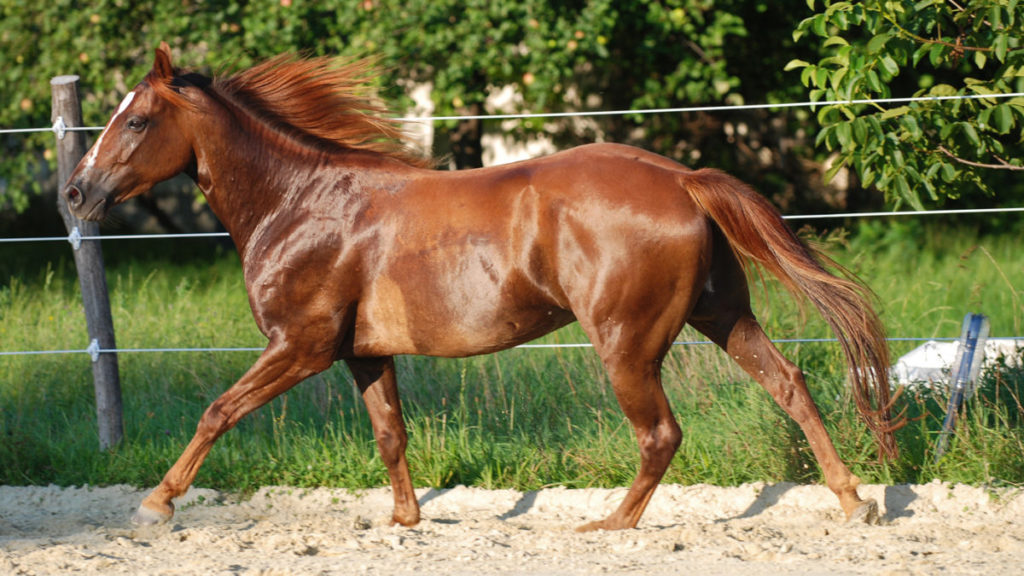Many horse owners take a lot of pride in their horse’s coat, as it’s a well-known fact that skin and coat condition reflect the wellbeing and general health of an animal, including horses. In addition to regular grooming, nutrition is important for providing the foundations of looking good during the summer. So, what are the top tips for achieving a summer glow for your horse and what horse food do you need for a balanced diet?
Feeding A Balanced Diet
The nutrients most commonly lacking in horse’s diets are vitamins and minerals. This is often because grass provides plenty of protein and energy to meet most leisure horse’s requirements but it is lacking in trace minerals particularly copper and selenium. So, although many horse owners think that if their horse is kept at grass and maintaining their weight well then no supplementary feed is required, horses still benefit from a low calorie source of vitamins and minerals such as a balancer or supplement. Using these types of horse feed will ensure they are receiving the right amount of minerals and vitamins to create a dazzling summer glow!
Specific Nutrients To Support The Coat And Skin
Zinc, biotin and copper are all key nutrients needed to support the coat and skin of the horse. Zinc is important for enzymes that impact upon the health of the skin. The epithelial cells making up the skin need zinc for repair, maintenance and reproduction. Although zinc is found in forage, you may need to feed additional zinc to meet your horse’s requirements.
Copper is needed to maintain the structural integrity of the cross-linkages; these give strength to the collagen in the skin. The levels of copper in forages are very low and so a horse is likely to be copper deficient if no supplementary horse feed is supplied. Combined, both zinc and copper impact melanin. This is the protein that is responsible for hair pigmentation; if there is inadequate melanin, hair is at risk of oxidative damage.
Although most horse owners associate biotin with helping hoof growth, it’s also important for the skin and coat. This B vitamin is made by the bacteria found in the horse’s hindgut. Although this means that biotin deficiency is unlikely if horses are fed a high fibre diet, good doers on restricted rations usually benefit from supplementary B vitamins including biotin. Older horses have less efficient digestive systems and are more prone to digestive upsets and so are another group that may benefit from B vitamin supplementation.
Fatty Acids In The Diet
Cell membranes contain fatty acids which can be vulnerable to damage by free radicals. The fatty acids help to provide a protective barrier in skin keeping moisture in but also keeping water out so the skin is waterproof! There are two key groups of essential fatty acids known as omega 3 and omega 6. Ensuring the horse receives enough of these essential fatty acids in their diet helps to promote good skin and coat condition.
Sources of Fatty Acids for Horses
Just as for humans, fish oils are the best source of omega 3 for your horse. If you don’t like the idea of feeding fish then the next best options are linseed/flax, soya and rapeseed oil. Micronised linseed is a popular feed which will also provide additional protein and vitamins and minerals as the whole seed is fed – please note linseed must be cooked prior to feeding to horses. Cold pressed oils are popular but tend to be more expensive as pressing seeds is a much less efficient way to extract oil than using solvents.
It is worth noting that although grass doesn’t contain a high level of oil, the oil that it does contain is higher in omega 3 than 6. Cereals that are commonly fed have much higher levels of omega 6 than omega 3 and so shift the balance of the two types of fatty acid in the diet. This is thought to potentially put the body into a more inflammatory state so it is recommended to reduce the use of cereals or supply a source of omega 3 to counteract this effect.
Worming And Teeth
As previously mentioned, although nutrition is essential to achieving a summer glow, so is the wellbeing of your horse. Therefore, it’s worth starting with the basics and thinking about their worming programme, ensuring vaccinations are up to date and having their teeth checked.
If a horse has a heavy worm burden, there will be no shine to their coat. Therefore, ensure that you rotate your pastures, use fecal egg counts to determine the worm burden and poo pick your fields.
Additionally, if your horse has got sharp teeth, this will interfere with their natural eating habits, meaning their intake may be compromised.
Hopefully these top tips will help you to achieve a summer glow for your horse. By simply ensuring that they receive a balanced diet and checking the wellbeing of your horse, it can be easy to make sure that they have a healthy body and coat. If you would like more information about what to feed your horse, speak to an equine nutritionist.

